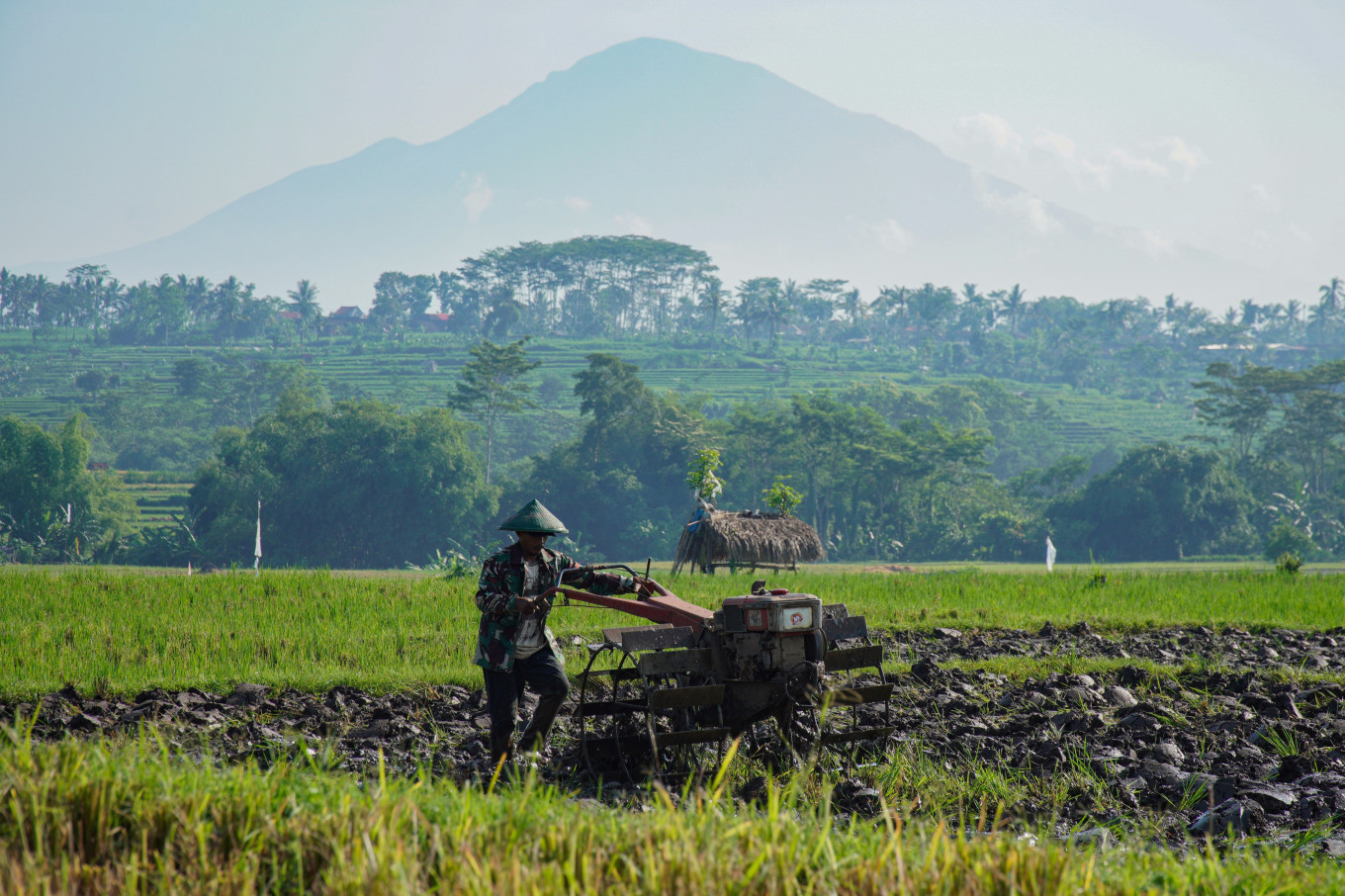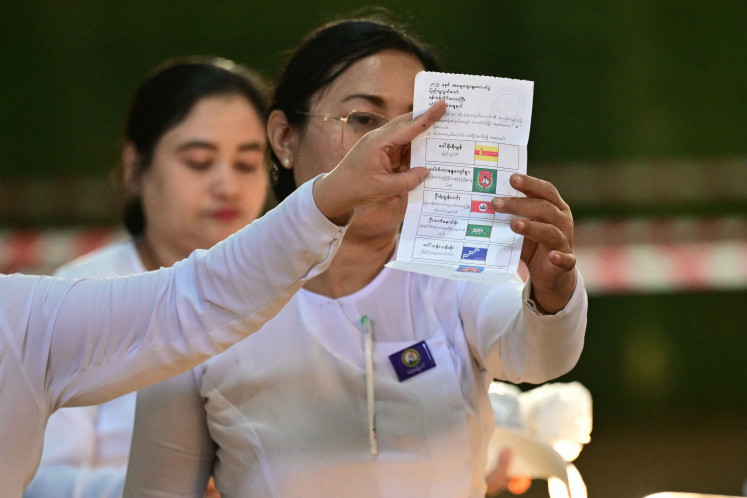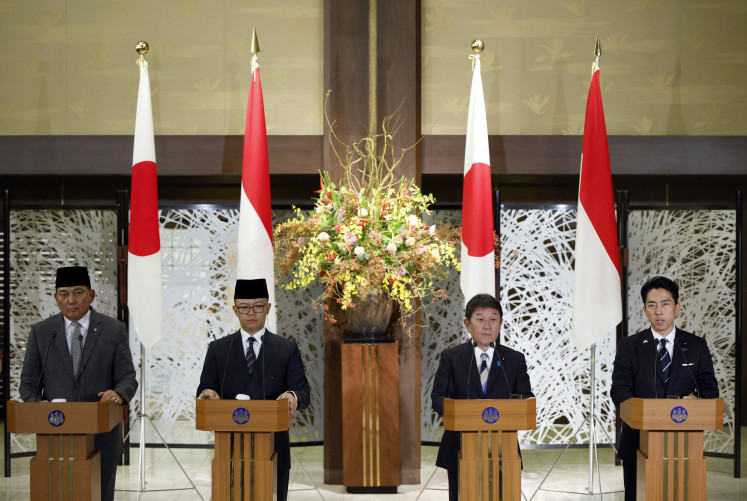Popular Reads
Top Results
Can't find what you're looking for?
View all search resultsPopular Reads
Top Results
Can't find what you're looking for?
View all search resultsMake farming profitable again
Change text size
Gift Premium Articles
to Anyone
T
he Indonesian agriculture sector will need massive reforms to make President Prabowo Subianto’s dream of food self-sufficiency a reality.
Prabowo could start with ensuring that no more Indonesian farmers work with poor equipment and inputs, which they often purchase on their own with whatever funds they can pull together from past harvests.
Boosting production is only possible if smallholders can afford advanced equipment and technologies, such as drones, combine harvesters and high-quality seeds and fertilizers.
Continuing to ask the state to provide these is not likely to bring significant results, as years of government procurement efforts have failed as a result of corruption, convoluted bureaucracy and errors in registries of recipients.
Ideally, smallholders should organize, forming cooperatives so that they can achieve economies of scale that can help them afford more advanced equipment and inputs by themselves.
However, this is only possible if agriculture becomes a profitable business, which the government must endeavor to make a reality. Farming is not supposed to be something that people do out of social responsibility, nationalism or limited life options.
The government could begin by establishing a fair farm gate price that benefits farmers to ensure they keep planting each season and maintain the scale of production.
India, China and Thailand, for instance, have long had a minimum price system, with the government acting as a safety net to prevent prices from falling below a threshold that could threaten farmers' livelihoods.
If needed, the government could offer farmers loans with generous terms to help them scale up.
In Indonesia, food pricing tends to favor the end-consumer, partially for the sake of containing inflation, but this often comes at the expense of smallholders and with the aid of imports. This issue is exacerbated by middlemen and speculators, whose practices the government has been unable to eradicate for years.
Price uncertainty has discouraged many local farmers, some of whom have decided to ditch food crops for cash crops or even to stop farming altogether.
It is no wonder that fewer and fewer young Indonesians want to be farmers. The number of farmers in the country has fallen by 7.45 percent over the past decade, from 31.7 million to 29.34 million, according to Statistics Indonesia (BPS) data from late 2023.
Over that period, by age group, only the share of farmers aged 45 and above increased. The percentage of farmers below that age fell significantly as younger people began looking for more favorable opportunities.
Declines in the production of major food crops have accompanied this downward trend. Corn production decreased from 16.5 million tonnes in 2022 to 14.8 million tonnes in 2023. In those same years, rice production fell from 31.5 million to 31.1 million tonnes.
To move forward, the country needs more than just free tractors and seeds and subsidized fertilizers.
The recently established, ministry-led Food Self-Sufficiency Brigade program promising young Indonesians a possible Rp 10 million (US$628.38) a month if they succeed in producing crops with government-supplied equipment is a step in the right direction.
But top-down initiatives such as this and the widely vaunted food estates can only carry us so far, especially if farmers themselves are not given due consideration.
The agriculture sector must be attractive and profitable enough so that we don’t need to beg people to work in the fields.











